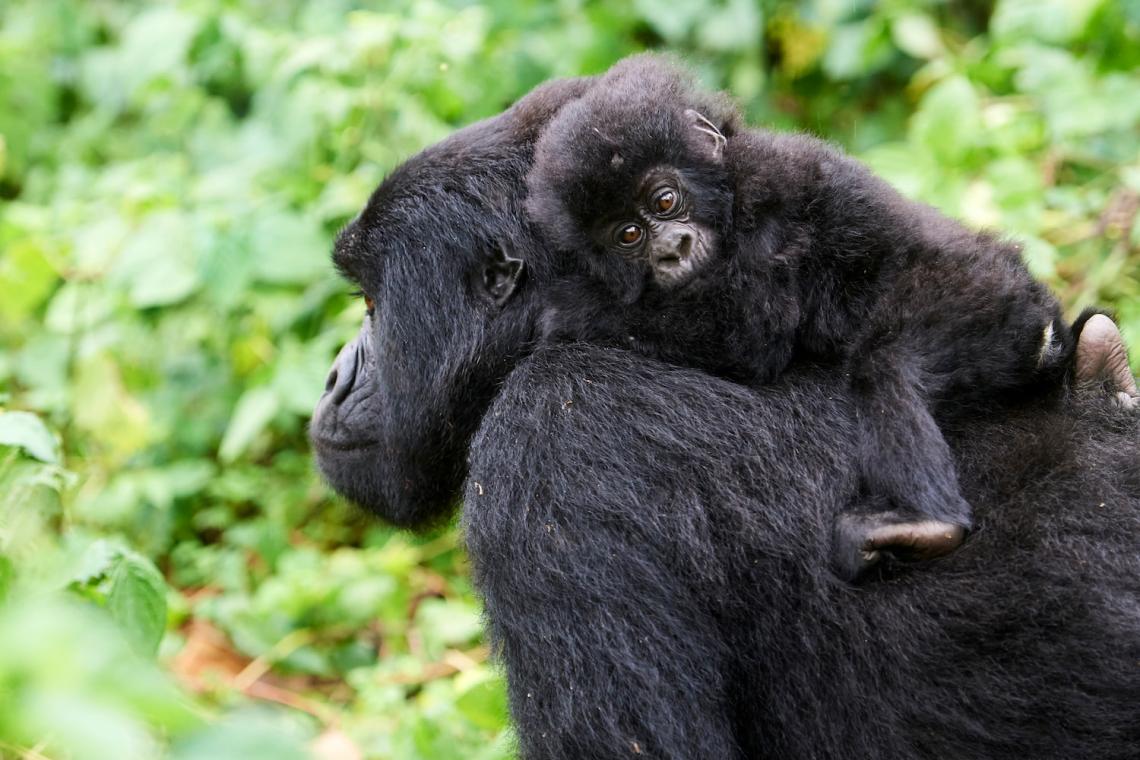The WWF 2024 Living Planet Index (LPI) paints a troubling picture of our planet’s ecosystems, showing a 73% decline in the average size of monitored wildlife populations from 1970 to 2020. This alarming trend highlights the profound impact of human activity on biodiversity, with widespread implications for both wildlife and people.
The Living Planet Report reveals that freshwater ecosystems have suffered the greatest losses, with wildlife populations plummeting by 85%, followed by terrestrial populations (69%) and marine populations (56%)
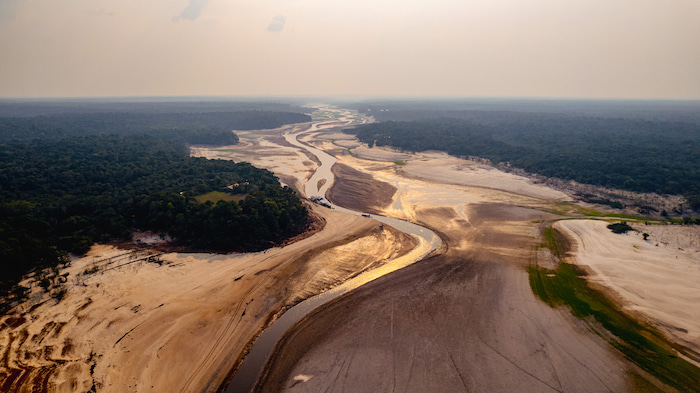
Negro river, around the Manaus region, one of the rivers that has suffered most from the drought that has spread across the Amazon in recent months. © Jacqueline Lisboa / WWF-Brazil
Key Points
- According to WWF’s 2024 Living Planet Report, monitored wildlife populations have declined by 73% since 1970.
- The report reveals that freshwater species have experienced the most severe losses, with an 85% decline.
- Habitat loss, primarily driven by unsustainable food systems, is identified as the leading cause of biodiversity loss.
- Latin America and the Caribbean have suffered the highest regional declines, with wildlife populations down by 95%.
- The report emphasizes the need for immediate global action to avoid reaching irreversible ecological tipping points.
Download The Living Planet Index
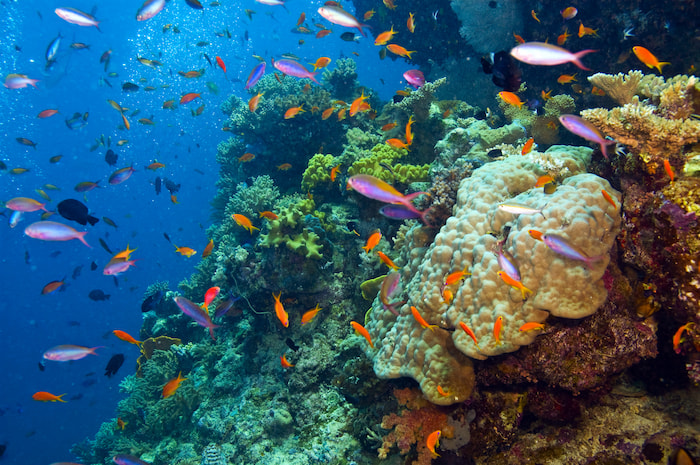
Fish and coral in the Great Barrier Reef, Australia. © Shutterstock / Debra James / WWF
Global Biodiversity Crisis
Biodiversity is the foundation of human life, providing essential ecosystem services like clean air, water, food, and climate stability. Yet, despite its critical importance, biodiversity is disappearing at an unprecedented rate. The regions most affected include Latin America and the Caribbean, which have seen a shocking 95% decline in monitored wildlife populations. Africa follows closely with a 76% decline, while Asia and the Pacific show a 60% decrease.
Although conservation efforts have led to stabilization or recovery in some areas, the overall picture is grim. Habitat loss, primarily driven by unsustainable food systems, remains the most significant threat globally, exacerbated by overexploitation, invasive species, disease, climate change, and pollution.
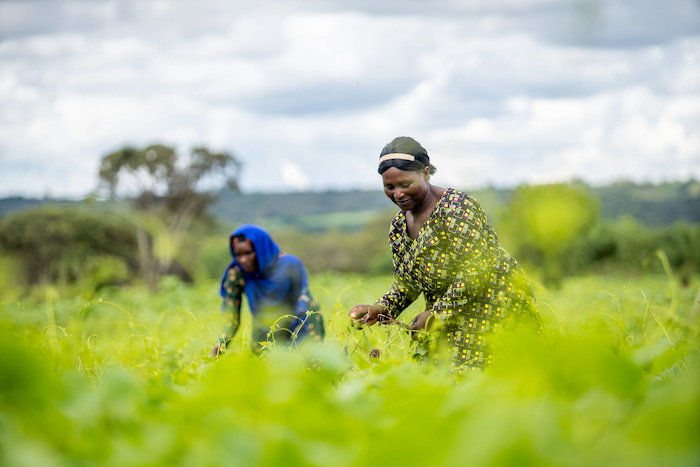
Agatha Mkayula and Rhoida Chonya (blue scarf) in field managed by her Village Savings and Loan Association, supported by CARE-WWF Alliance in Tanzania. © Wideangle Media / WWF Switzerland
Avoiding Ecological Tipping Points
Perhaps most concerning is the report's warning that we are fast approaching dangerous tipping points. Once crossed, these thresholds could trigger abrupt and potentially irreversible changes, with devastating consequences for ecosystems and human societies. The loss of coral reefs, the collapse of oceanic currents, and the melting of polar ice sheets could have far-reaching global impacts, from destabilizing weather patterns to triggering massive sea level rise.
However, there is still time to prevent the worst outcomes. The report stresses the urgent need to strengthen ecosystem resilience and address the underlying drivers of nature loss before these tipping points are reached.
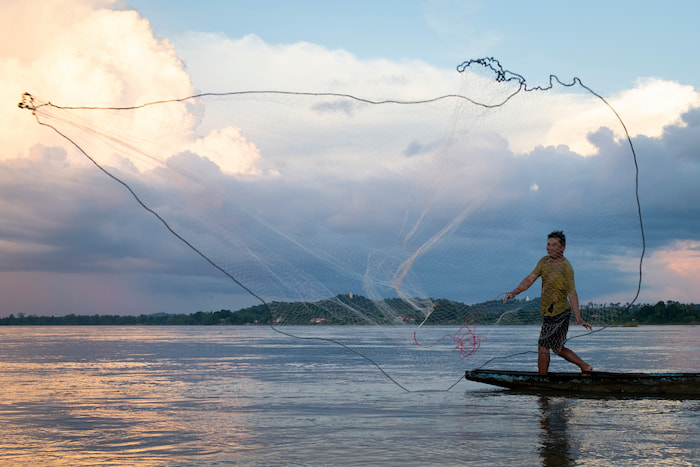
A fisher casting a net during sunset near Na Village, Kong Island, Siphandone (4000 islands), Lao PDR © Emanuela Colombo / WWF-Laos
Kirsten Schuijt, Director General of WWF International, underscores the gravity of the situation:
"Nature is issuing a distress call. The linked crises of nature loss and climate change are pushing wildlife and ecosystems beyond their limits, with dangerous global tipping points threatening to damage Earth’s life-support systems and destabilize societies."
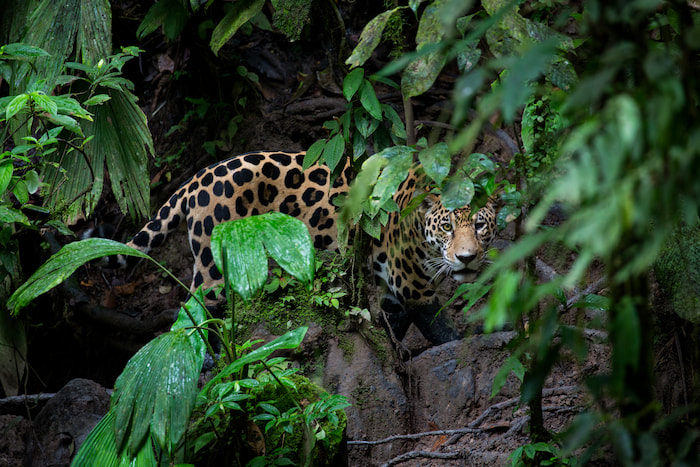
Jaguar (Panthera onca) looking through forest leaves, Yasuni National Park, Ecuador. Amazon Rainforest © Karine Aigner / naturepl.com / WWF
A Call for Transformative Change
The report advocates for a fundamental transformation of key global systems, including food, energy, and finance, to reverse the trend of biodiversity loss. The global food system, responsible for 40% of land use and over a quarter of greenhouse gas emissions, is identified as a primary driver of environmental degradation. Reorienting agriculture towards nature-positive practices, reducing food waste, and shifting diets toward plant-based foods are critical to creating a sustainable future.
The energy sector also needs a rapid transition away from fossil fuels. Although progress has been made in renewable energy, the pace of change must accelerate to meet global climate targets.
Financing conservation efforts and sustainable practices is another essential element of this transformation. Currently, trillions of dollars are still being directed toward activities that harm the planet, while the funding for nature-based solutions remains limited. Redirecting even a fraction of these resources could close the funding gap for biodiversity conservation.
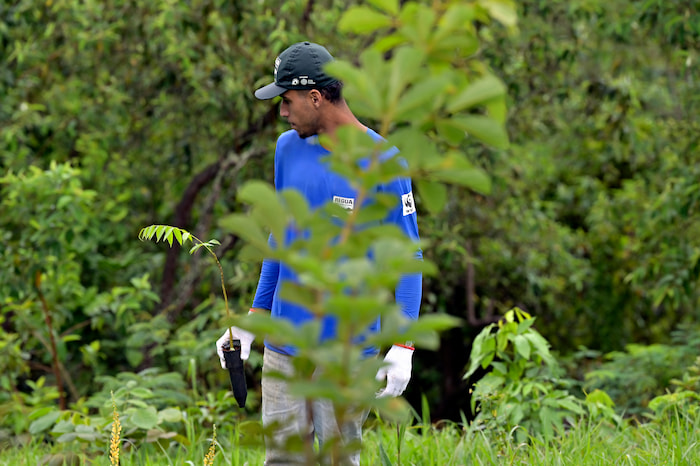
Regionan Alves, Restoration team, Reserva Ecológica de Guapiaçu (REGUA); RJ; Brazil, 2022. © Adriano Gambarini / WWF-US
A Shared Responsibility
The report emphasizes that reversing biodiversity loss will require coordinated global action. Governments, businesses, and civil society must work together to drive systemic change, from rethinking food systems to financing sustainable development. Protecting the planet’s remaining biodiversity is a moral imperative and a practical necessity for ensuring the long-term well-being of all life on Earth.
As Dr Deon Nel, Head of Environmental Programmes at WWF South Africa, states, “What happens over the next five years will be crucial for the future of life on Earth. We have the power – and opportunity – to change this trajectory. Incremental gains will not be enough. Institutions will need to reinvent themselves to rise to this challenge.”
The Living Planet Report leaves no doubt: the time for incremental action has passed. What happens next will determine whether we can avert catastrophic tipping points and create a sustainable future for future generations.
Main Image: Female Mountain gorilla (Gorilla beringei beringei) carrying a baby on back, member of the Kabirizi group, Virunga National Park, North Kivu, Democratic Republic of Congo, Africa, Critically endangered. © naturepl.com / Eric Baccega / WWF

